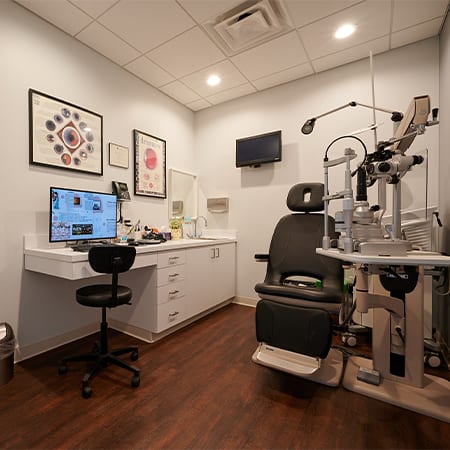A question that we frequently get is what constitutes a medical vs a routine vision exam. We are legally bound to bill according to the primary reason for the visit for the day. A medical complaint has to be billed to through your medical insurance where a routine vision exam can be billed through your vision insurance.
Routine vision exams
A routine eye exam is defined by insurance companies as an office visit for the purpose of checking vision, screening for eye disease, and/or updating eyeglass or contact lens prescriptions. Routine eye exams produce a final diagnosis, like nearsightedness, farsightedness or astigmatism.
Vision insurance plans provide coverage for routine exams, glasses and contact lenses, or at least provide some type of discounts on your doctor’s fees. A routine eye exam is billed to your vision insurance plan. By law, Medicare does not pay for routine vision exams.
Medical eye exams
A medical eye exam produces a diagnosis, like conjunctivitis, dry eye, glaucoma or cataracts, to mention a few. Depending on your policy, your medical insurance may cover a medical exam, but not pay for the exam if it is a routine eye exam. Examinations for medical eye care, assessment of an eye complaint or to follow up on an existing medical condition are billed to your medical insurance plan.
We do our best to educate everyone ahead of time if their visit will be considered routine or medical so that there are no surprises at the end of the exam.




















